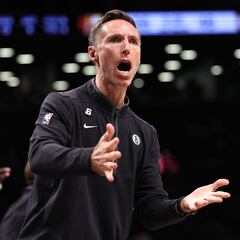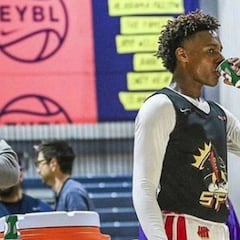Why did the NBA penalize the Philadelphia 76ers by docking two second-round draft picks?
With the league and players association declaring that they will review related rules, one has to wonder where this all ends.


While it’s now clear that the Sixers have been punished, what remains cloudy is what this will mean for other teams in the league going forward. Will the league and the players association clamp down on a widespread practice?
NBA & NBA Players Association sanction 76ers
In the world of soccer, there are normally heavy penalties enforced if a team is found to have had contact with a player of another team who is under contract. Outside of the designated transfer periods, any contact between players and teams for who they do not play is strictly forbidden. With that in mind, the NBA’s announcement on Monday was a curious one. If you’ve not been following, the league has officially, stripped the Philadelphia 76ers of their second-round picks in 2023 and 2024 due to violations of “league rules governing the timing of this season’s free-agency discussions.” Indeed, the league found that the Sixers “engaged in free-agency discussions” with P.J. Tucker and Danuel House Jr. before “such discussions were permitted.”
The NBA and NBPA are expected to revisit the rules that punish teams discovered to have had discussions with player agents on pending free agents ahead of free agency's official start, sources said. The practice is rampant, but hard to police and largely impossible to eliminate.
— Adrian Wojnarowski (@wojespn) October 31, 2022
Further to that, ESPN then reported that the NBA and the National Basketball Players Association are “expected to revisit the rules that punish teams discovered to have had discussions with player agents on pending free agents ahead of free agency’s official start.” Wojnarowski added that “the practice is rampant, but hard to police and largely impossible to eliminate.” That last part is key. As mentioned above in the context of soccer, there are strict rules and even stricter penalties that are enforced, which as you can imagine are tied to a very clear outline of what constitutes ‘illegal’ contact between a player and a team. Needless to say, this situation is about to get a whole lot more interesting. The question that remains, is what effect will this have on trade negotiations going forward?
What happened with the 76ers and P.J. Tucker?
According to the league, an investigation into Philadelphia’s pursuit of free agents P.J. Tucker and Danuel House Jr. was conducted and subsequently found that the team had engaged in negotiations with the two forwards before the date that it was permissible to do so. Tucker later signed a three-year, $33.2 million deal with the Sixers once the signing period began, while House’s contract spans two years and is worth a reported $8.4 million. Interestingly, the NBA indicated that the franchise cooperated fully with the investigation.
Is this something the NBA can fix?
Related stories
Consider for a moment, the words of former Grizzlies vice president of basketball operations, John Hollinger. Speaking after news first broke of the NBA’s tampering investigations into the Sixers and New York Knicks as well, Hollinger didn’t hold back. “News flash: Free agency is 90 percent done by the time it allegedly starts,” he said. “Virtually every player of significance had a deal announced in the first 36 hours this year. Many of those announcements, no doubt, were still foot-dragged to provide the cover of plausible deniability.” In other words, this not just widespread, it’s common practice.
REPORT: The NBA is investigating the Philadelphia 76ers for tanking for projected first overall pick Victor Wembanyama, per numerous sources. pic.twitter.com/Z3SC5g82zO
— Buttcrack Sports ® (@ButtCrackSports) October 23, 2022
From The Athletic reporting that the Denver Nuggets had agreed to a contract with veteran center DeAndre Jordan within minutes after the signing period started, to announcing - seconds later - that the Knicks had agreed to a two-year, “$16 million-plus deal” with free-agent center Isaiah Hartenstein, it’s pretty clear that these contracts were agreed upon beforehand. Where does that leave the league and its teams? Quite frankly, this uncharted territory now. It will be interesting to see how the league moves forward as it attempts to create what it calls a “level playing field.” For the moment, what we can say is that

